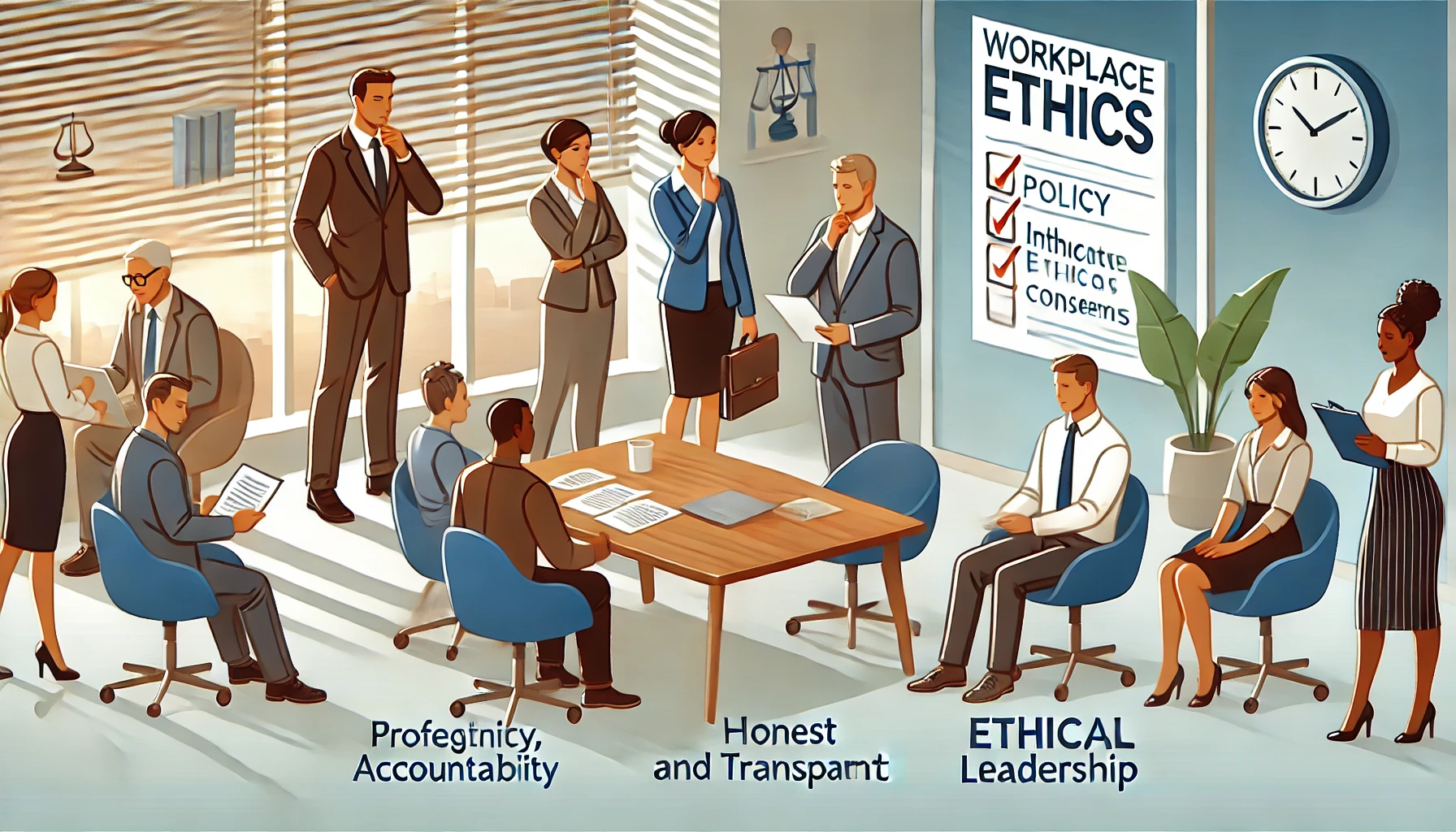Integrity is one of the most valuable qualities in the workplace. Professionals with strong integrity earn trust, build credibility, and contribute to a positive work environment. Ethical decision-making ensures that choices align with company values, legal standards, and moral principles.
However, maintaining integrity can be challenging when faced with peer pressure, company politics, or ethical dilemmas. Developing strong ethical decision-making skills helps professionals navigate difficult situations with confidence and professionalism.
In this article, we’ll explore six key strategies to strengthen workplace integrity and ethical decision-making.
1. Define and Commit to Your Core Values
Integrity starts with knowing your personal and professional values.
How to build a strong ethical foundation:
✔ Identify the values that guide your professional behavior (e.g., honesty, fairness, accountability).
✔ Align your daily actions with your core beliefs.
✔ Recognize situations where your values might be challenged.
✔ Be consistent—integrity means doing the right thing, even when no one is watching.
💡 Example: If transparency is a core value, be honest with clients and colleagues, even when mistakes happen.
2. Make Ethical Decisions Using a Thoughtful Process
Rushed decisions can lead to ethical missteps—using a structured approach ensures fairness.
How to make ethical decisions at work:
✔ Consider the impact of your decision on all stakeholders.
✔ Identify any potential conflicts of interest.
✔ Ask yourself: Would I be comfortable if this decision were made public?
✔ Seek advice from mentors or ethics committees when in doubt.
💡 Tip: A good ethical decision feels right not just legally, but morally.
3. Hold Yourself and Others Accountable
Integrity thrives in workplaces where accountability is a shared responsibility.
Ways to encourage accountability:
✔ Take ownership of your actions and their consequences.
✔ Address ethical concerns immediately and professionally.
✔ Support a culture where mistakes are acknowledged and corrected.
✔ Lead by example—show integrity in everything you do.
💡 Example: If a coworker is engaging in dishonest behavior, report it through the proper channels instead of ignoring it.
4. Promote Transparency and Honest Communication
Lack of transparency breeds distrust and unethical behavior.
How to foster workplace honesty:
✔ Keep communication open—share information clearly and truthfully.
✔ Admit mistakes early and focus on solutions instead of cover-ups.
✔ Avoid misleading clients, colleagues, or supervisors.
✔ Provide constructive, honest feedback in all interactions.
💡 Tip: Ethical workplaces prioritize clarity over secrecy—even when discussing difficult topics.
5. Respect Workplace Policies and Legal Standards
A strong ethical foundation requires compliance with company policies and laws.
How to stay aligned with professional standards:
✔ Read and follow the company’s code of ethics and conduct.
✔ Stay informed about legal regulations in your industry.
✔ Report violations or unethical behavior through proper channels.
✔ Avoid conflicts of interest that could compromise professional judgment.
💡 Example: If a policy prevents accepting expensive client gifts, politely decline and explain the ethical reasoning behind it.
6. Encourage an Ethical and Inclusive Work Culture
A culture of integrity starts with individuals but grows through collective effort.
Ways to create an ethical workplace culture:
✔ Support diversity, inclusion, and fair treatment for all employees.
✔ Advocate for ethical leadership and transparent decision-making.
✔ Recognize and reward ethical behavior in the workplace.
✔ Speak up when you witness unethical actions or discrimination.
💡 Tip: Ethical workplaces value fairness and inclusivity just as much as performance.
Final Thoughts
Strengthening workplace integrity builds trust, fosters professionalism, and ensures ethical decision-making. By defining core values, following an ethical decision-making process, holding yourself accountable, promoting transparency, respecting policies, and fostering an ethical work culture, you can become a leader in workplace integrity.
Start applying these strategies today and contribute to a more honest, responsible, and ethical professional environment! 🚀

